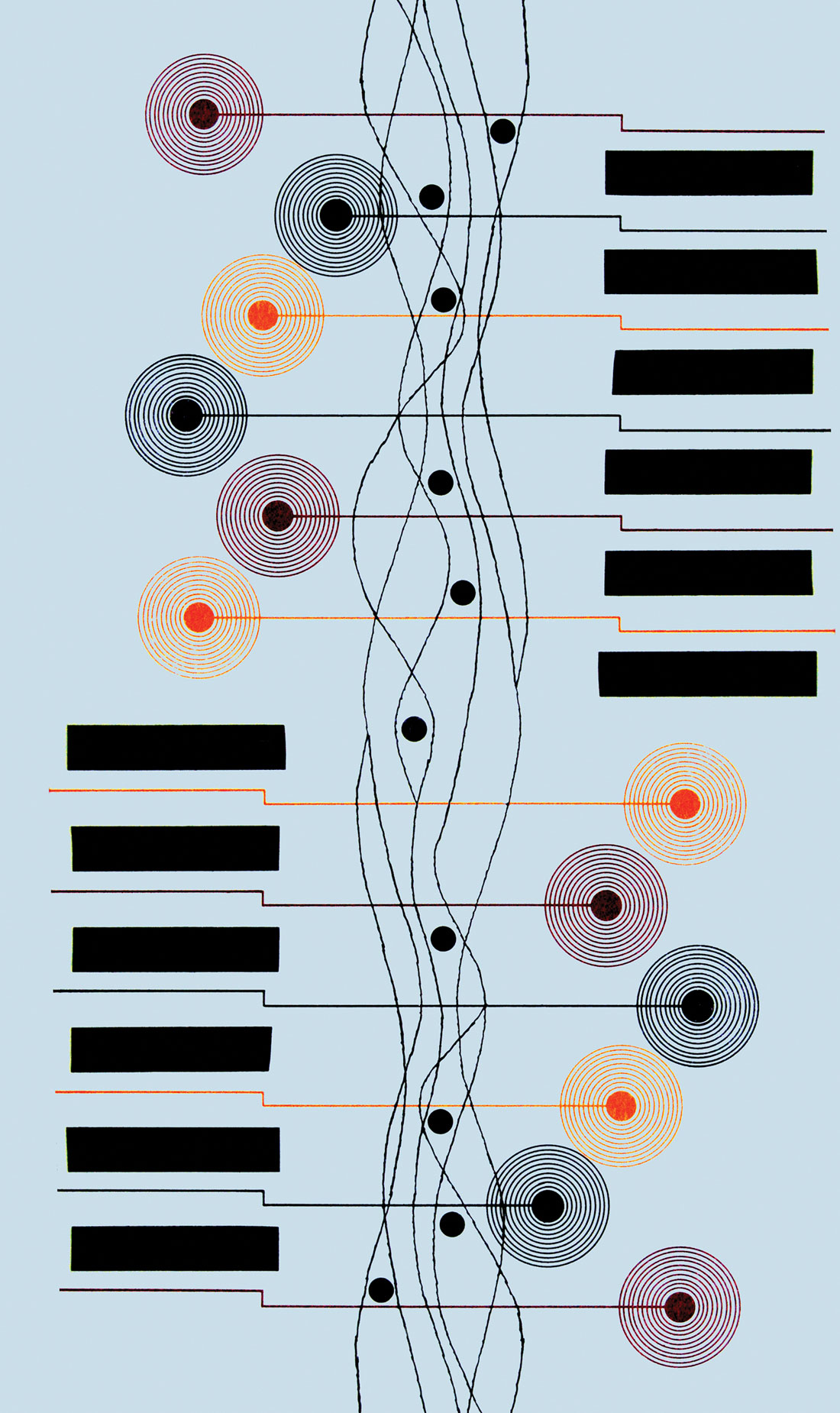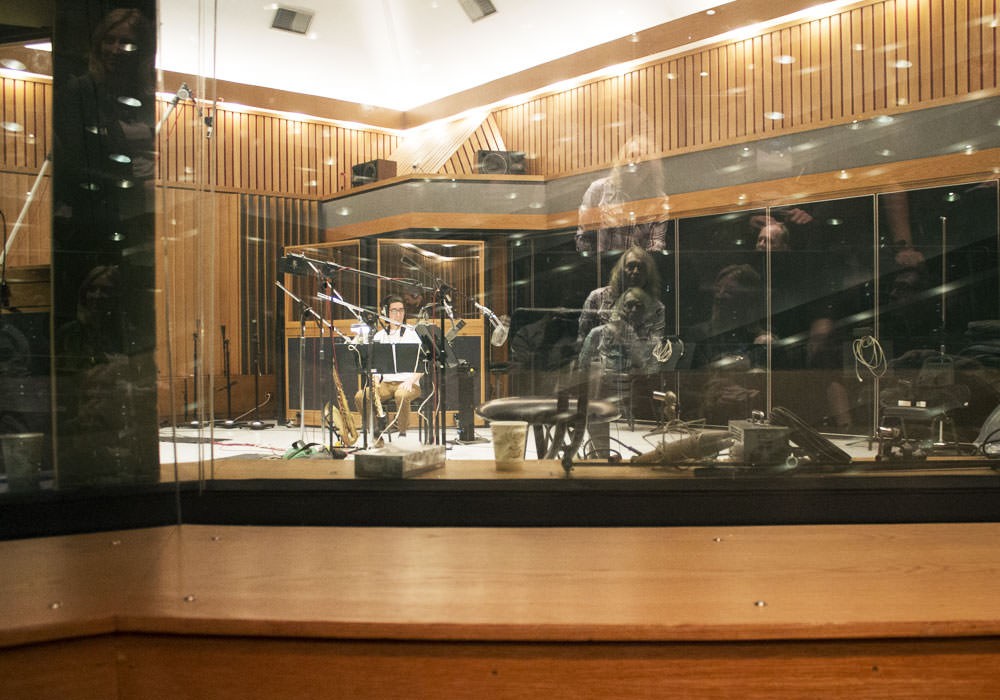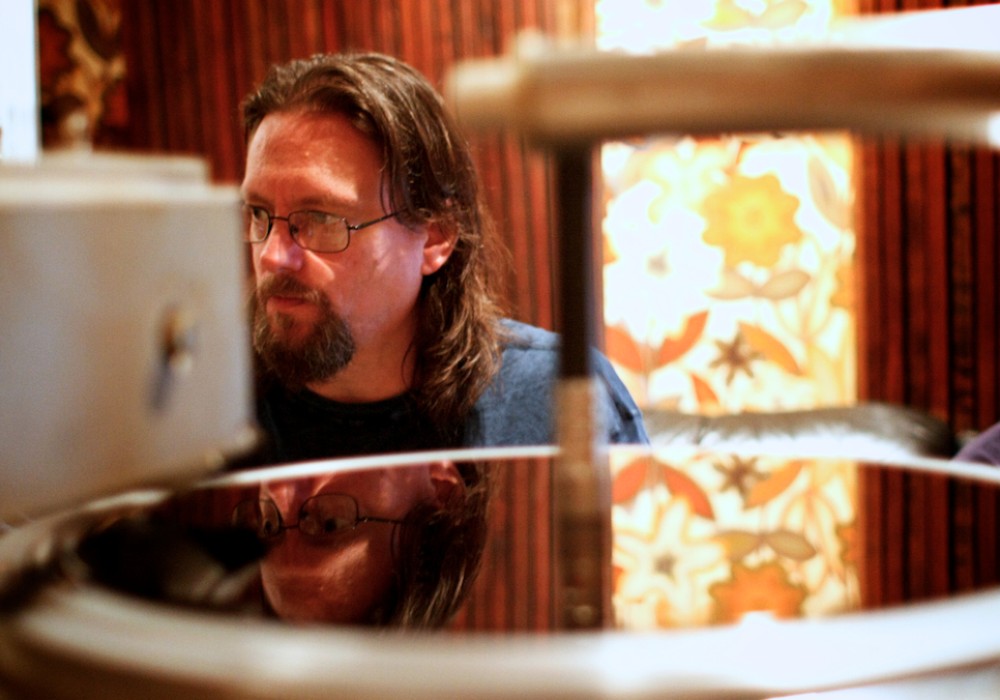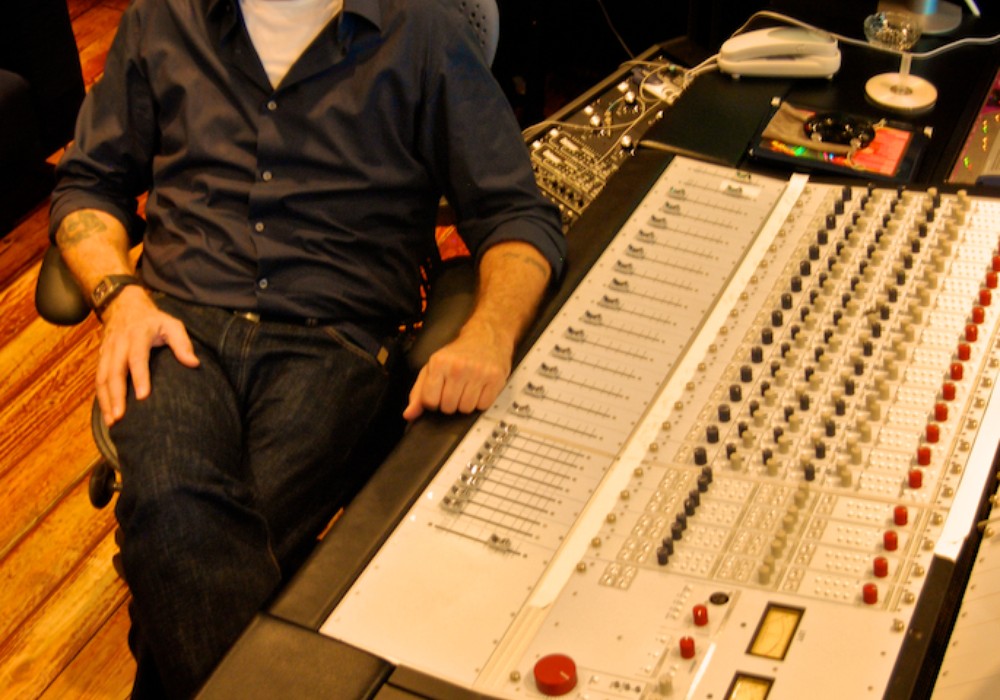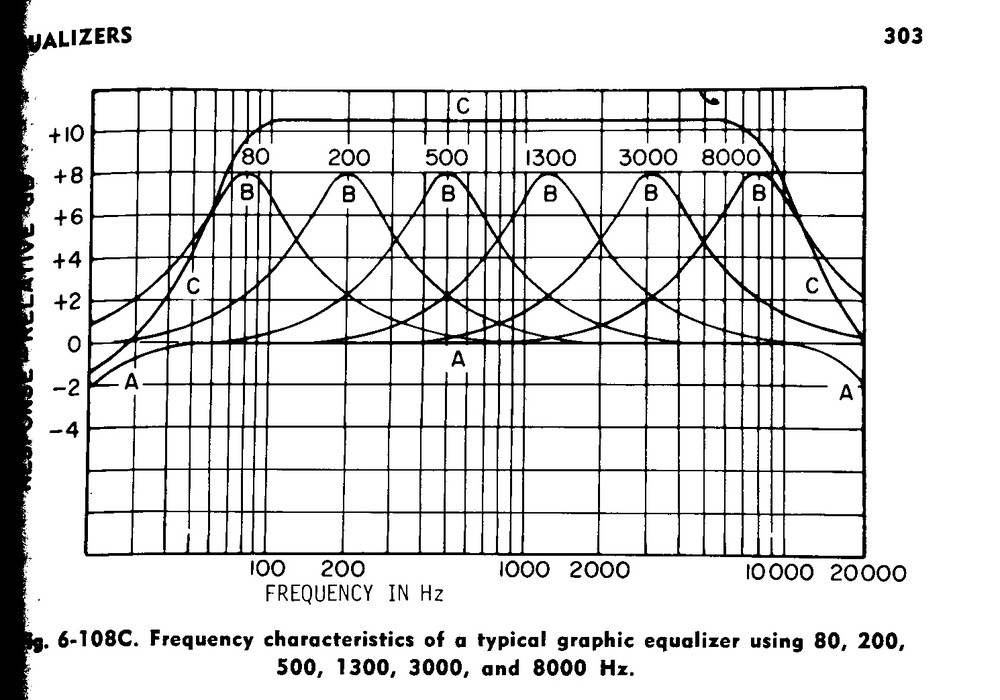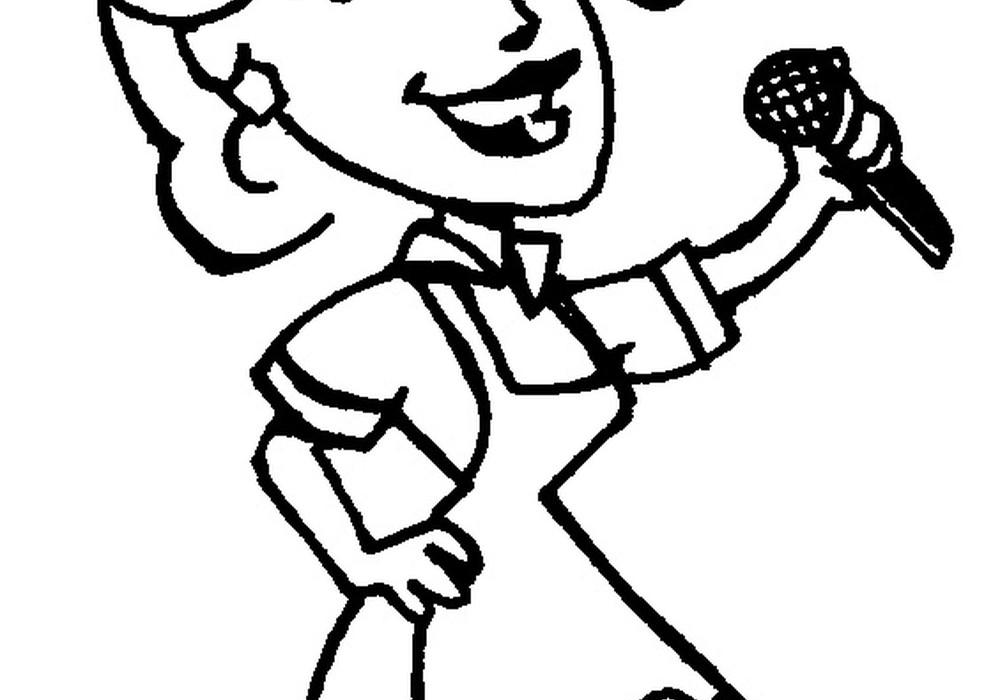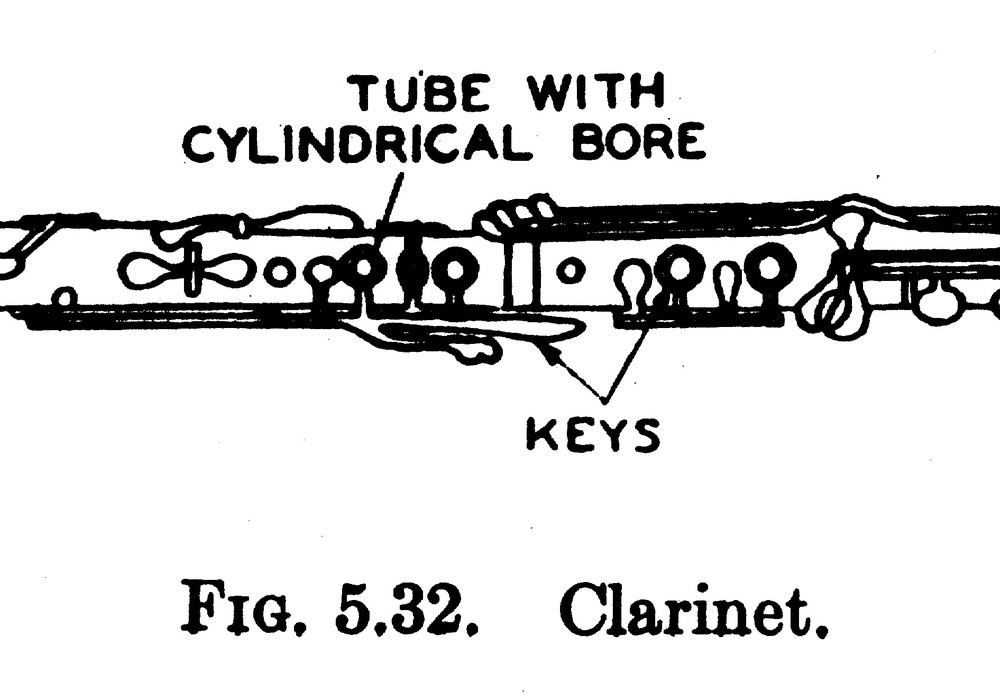Walking into Eric Lichter's Dirt Floor Studio in Chester, Connecticut, is what I imagine it must have been like to walk into The Band's Big Pink or Shangri La recording spaces in the '60s and '70s. His vision for the space is immediately clear: a home for creation — not a sterile facility. After years of traveling the country as a singer-songwriter, Eric opened Dirt Floor in 2007 to help other artists avoid the same mediocre recording experiences he had gone through. His work as a producer and engineer has gained Dirt Floor a reputation for being one of the best studios in the Northeast for roots-based music.
How did Dirt Floor come about?
By accident. I was a singer-songwriter in New York City, struggling while recording in various studios that weren't quite giving me what I wanted. It was very uptight and very intimidating to be in those spaces. There was never a recording experience that I felt good about, and I never got anything musically that I felt represented me. So, in 2003, I amassed some equipment, like a [Tascam] DA-38 machine and a little Mackie [mixer] board. I just wanted to record some of my own stuff. I borrowed a friend's drum set, I found a cheap organ, and put it all in my apartment. I started to learn how to play them by listening to '70s-era singer- songwriter, folk-rock albums.
I know you studied music, but you trust your ears and the feel...
More than I do the mathematics of it. I didn't study music enough for it to make a difference. When I turn a knob on the mixing board, or on the preamp, I feel it more than I can see it. I know what it does to me inside. It's like when you're tuning a guitar with harmonics. When they're perfectly in tune, you get that feeling of ahhh.
How many Dirt Floor locations have there been?
This would be the fourth spot within a two-mile radius. I'm still trying to find the spot that will be home for the rest of Dirt Floor's existence, which I hope is a long time.
It's interesting that all four locations have revolved around the town of Chester. Why here as opposed to Boston or New York, which are both two hours away?
I feel like I'd get swallowed up in any of those towns. There are so many studios; by having some distance from those places, I can be a bigger fish in a smaller pond. Chester is a very artistic place. I get a lot of artists from Boston, New York City, and Providence [Rhode Island] who want to get out of the city and come here.
Is there a way to sum up what you call "the Dirt Floor sound," other than just hearing it? Can you describe it?
It's honest. I don't want to leave a mistake in just because it's a mistake, but I like the imperfections. I remember those records as a kid, like [Neil Young's] Harvest, where there were these moments of imperfection — a reversed, screwed-up drumbeat or a really bad note. When you listen to those songs, you wait for those parts — those little stops along the way. I really wanted to keep that tradition. I realized that using tape and using old instruments are ways of getting that sound. Also, I like helping artists to be themselves. I want them to be completely comfortable with the imperfections, without wanting to correct everything and polish themselves until they're boring.
Do you have a gut-meter for when an imperfection is going to add character versus when you need to do another take?
Yeah, I wince! A bad note is a bad note. A lot of times it has to get fixed. But there are other elements, like the way something is picked — maybe picked a little too hard — or if the voice breaks. To me, that's emotion. A lot of times I'll argue with the artist, and I'll say, "Listen, sit with it overnight. If you don't like it tomorrow we'll fix it." Very seldom do I have to go in and fix it. I'm not the first person to do this — it's been going on for decades. I just want the artists to be entirely themselves. I feel that if you let people see and hear who you really are, it does something to them. The music isn't perfect, but it is perfect because it comes from a real place.
How do you approach a session?
Before a client comes in I'll schedule a meeting. We'll get coffee before we book a session. When an artist or band comes in I don't want to feel awkward, and I don't want them to feel awkward. This way we're buddies by the time we start rolling. We've hung out and we're on the same page. I tell them, "We're gonna have a whole hell of a lot of fun, and we're gonna work our asses off." On the day of the session everything is all set up when they get to the studio. I like to be prepared. It cuts down on my anxiety if everything is ready to go. At the end of the first day I want an artist to feel like they got a shit-ton done. There's nothing worse than being in the studio all day and thinking, "I just spent $500 bucks and I don't have anything." My goal is to surpass their expectations, every time.
You work with a lot of singer-songwriters. Most of the time you function not only as a producer and engineer, but you also end up being their band or session musician.
I feel like there are a few selling points as to what makes this a unique place, and that's definitely one of the big ones. The fact that I can very tastefully act as their backing band, as well as take the song and deconstruct it and put it back together again — while also playing drums, keys, bass, guitars, harmonies, pedal steel. It's a combination of all of those things.
How do you handle playing instruments, producing an artist, and running the board at the same?
It goes back to the initial meeting. I want them to know that I'm egoless when it comes to that. I'm basically acting as their hands. Even though I'm giving a large part of my own "art" to them, there's no ego because there's no room for it when I'm trying to please the client. I think that makes it easier for them, and it takes the burden off of me as well. During the process I'll ask, "Are we going in the right direction?" I grow from every recording situation that I'm thrown into. It's a learning situation, and I haven't failed yet.
I've met a lot of people who have recorded at Dirt Floor, and every single one of them talks about you like you're their long-lost brother.
That's my favorite part. I'm family-oriented, and I was raised to treat people a certain way. I try to keep it a non-delusional atmosphere. I want people to be real when they come in and not some puffed up, arrogant rock star wannabe.
A lot of these people are staying here, right? Staying with your family?
Yeah, they'll come and spend a week or a weekend. We've gotten close with everyone. It's amazing. They all come back. It seems like Dirt Floor is growing every year. I just want to make sure that the aesthetic doesn't change.
Do you think those family-like relationships come from working so closely with the artists, or is it more your attempt to choose people who fit that aesthetic?
I choose them. I definitely work within the Americana, folk rock genres. I prefer them because I understand them the best. I feel like I try to get Dirt Floor to sound a bit like 1972 or 1973. You know, Topanga Canyon or something.
As far as equipment, what do you feel is absolutely essential?
Right now it's the Otari and Tascam tape machines [Otari MX-70, an Otari MX-5050, and a Tascam ATR-60]. I've been through a bunch of machines: Leon Russell's Scully 280, a 3M, and some others. Having a tape machine is important to me. I like limitations. For my next machine, I'd like to get a Studer A80 8-track, and make eight the limit. Right now I'm using 16-tracks. I have good microphones and a handful of good preamps. For the rest I have a bunch of cheapo shit. I don't really believe that you have to be at the Record Plant to make a fantastic record. Neil Young tracked most of After the Gold Rush in his house! But a tape machine is integral because I know how to use it. I trust it. I don't know how to use a computer.
One argument for modern technology is that it has made the recording process easier.
I understand that, and I believe it to be true, but it's not true for me. I've always done things my own way. I tried working with Pro Tools and it was a nightmare. It took forever, until it got to the point where I said, "Fuck it. I'm gonna grab a fresh reel." It's not because it's cool, it's just because that's what I know. When the artists come in, they know how I work. They know we're not going to be able to cut-and-paste something. Maybe it is more work, but it's easier for me.
Do you worry about treating the studio space acoustically?
I use packing blankets. I put them on heavy mic stands in a T-formation; I drape them and place them around the room. Then I go into the control room and I listen; then I move the blankets around until I get the sound I want. I've been able to make amazing records without anything else, so why am I gonna start now? Dirt Floor is a legitimate studio, but I want it to feel like home. We make records here, but it really does feel like a living room. Artists come in and have the greatest time. They don't want to leave! They just want to keep working because they feel like they are in a safe place. It doesn't even matter what gear I have. I mean, the gear is still important, so I have everything you need — tons of amps, keyboards, banjos, mandolins, and pedal steel. But the atmosphere is key.
I remember coming in and thinking, "Okay. I can do something here."
That's what I want.
Tell me about the house concert series.
We started it in 2008. I thought, "Well, we record here and the room is big enough that we could actually have concerts." Now they are filmed by HawkHill Media. I record them, and we are in the process of setting it up so people can stream the shows from an official website. They will also be able to buy the audio. We started that with my wife, Sandra Lichter. We recorded her album, Die on the Diamond, with an audience of about 50 people. It's gonna be a real push for the studio and the Dirt Floor name.
How do you see Dirt Floor in the future?
I always want to maintain what it is, what it represents to people and to myself. I want to keep rates reasonable, but I also want to maintain my business and have a budget to upgrade and get new things, like a Studer machine or a new mixing console. I still feel like I'm at the beginning of this journey. What I really try to do is rescue people from making shitty records. Even before I started this business I'd hear albums and think, "This could have been so much better. This opportunity was wasted because they went to a place where someone was just twiddling a knob and didn't do anything to help guide the process." So I just wanted to create a place where I can do that. Because I give a shit. I care.
